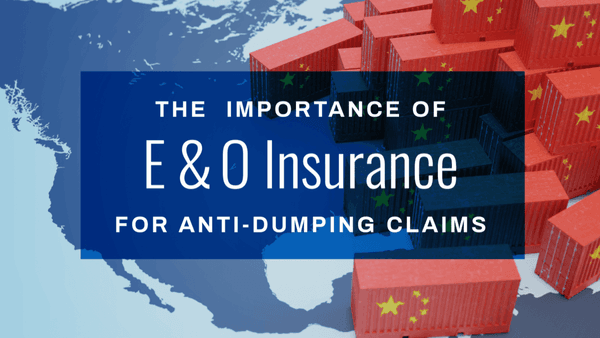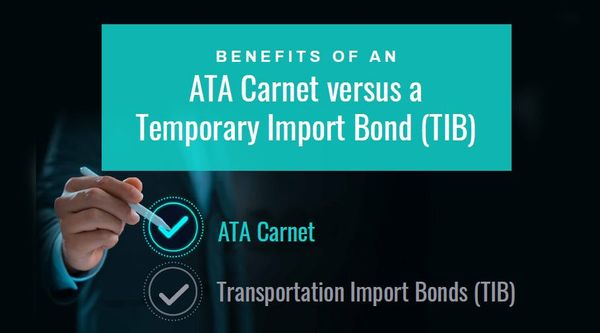Resource Center
What is Cargo Insurance?
What is Cargo Insurance?
A Remedy for Recovery
In the simplest terms, cargo insurance is a type of property coverage that protects the cargo owner against loss to their property when it is in transit. It is comparable to other types of property coverage such as car and homeowner’s insurance which are purchased to protect the financial interests of the owner of the vehicle or house. Cargo insurance covers against physical loss or damage from an external cause that occurs while goods are in route to their final destination. Coverage extends to an enormous number of causes of loss from theft from a parked truck enroute to the port, water damage caused by humidity inside a container, rogue waves knocking a container clean off the deck of the ship, fires caused by combustion of neighboring cargo – such as fireworks or batteries, or pallets falling off of forklifts while the goods are being loaded.
Why Cargo Owners Need Insurance?
For cargo owners involved in international and domestic trade, cargo insurance is an essential means to preserve their financial interests.
A cargo owner might reasonably expect that a carrier or warehouse operator who has custody of cargo would reimburse the cargo owner for losses to their property, but this is not always the case. Carriers such as steamship lines or airlines are not usually responsible for losses that are unforeseeable and beyond their control. For example, carriers are not commonly responsible for the following causes of loss because they are beyond their control:
- Fire, unless caused by the actual fault or knowledge of the carrier or warehouseman
- Stranding, sinking, vessel collision, or striking a submerged object
- “Aِِِct of God” – such as a lightning strike or a hurricane
- Any loss or damage inherent to the goods, such as rust or rot on unprotected metal or fruit
- And many others
In order to be compensated by a carrier for the financial impact of a loss to cargo, you must be able to prove that they are negligent. As all the television law dramas tell us, we are innocent until proven guilty, and so in a claim like this, the burden of proof falls on the cargo owner. Unless the cargo owner has insurance. An insurance claim does not require proof of negligence and has many other benefits over a claim against a cargo carrier.
| Cargo Insurance versus Carrier Liability* | ||
|---|---|---|
| Cargo Insurance | Carrier Liability | |
| Provides coverage from pick-up location to delivery location | Yes | No |
| Pays whether or not transportation provider’s negligence is proven to have caused the loss. | Yes | No |
| Pays for losses that occur outside carrier’s control. | Yes | No |
| Pays shipper for the full invoice value of cargo lost or damaged plus freight and other associated costs. | Yes | No |
| Pays cargo owner back for costs of efforts taken minimized covered losses. | Yes | No |
*Subject to terms and conditions of policy
Additionally, if they are in fact responsible for loss, a carrier’s or warehouse operator’s liability for lost or damaged cargo may be limited based on the documentation they’ve issued. The amount recoverable is usually much less than the actual claim amount. Here’s a real-life example of limits of liability impacting recovery:
An air shipment of 8 pallets of pharmaceuticals valued at $1.39M suffered a total loss due to an unforeseen temperature increase. The cargo owner sued the air carrier and won, but they were only awarded $60,000. This is the legal liability of the air carrier based on the contract of carriage terms. The terms were the standard recovery amount of 22 SDUs or $29.00 per kg based on the Montreal Convention air carrier limitation valuation. If the cargo owner had obtained cargo insurance on the shipment, it would have paid at the full value of the goods.
Why LSPs Offer Cargo Insurance to their Clients
As a logistics service provider, you have the opportunity to offer your clients this important coverage on each and every shipment. It’s a critical value add service that benefits both you and your clients. Taking the time to offer to place cargo insurance on shipments demonstrate your best in class professionalism and that you are operating as a true partner by explaining the financial risks inherent in transit and the best remedy for recover.
By helping to provide this essential coverage for your clients, you also help yourself through reduced risks of negligence claims, superior retention, and to support the growth of your business.
How to Select the Right Cargo Insurance Broker
There are many insurance agencies offering cargo insurance, but few specializing in logistics and supply chain. Partnering with a specialty insurance broker ensures you are securing the right coverage for your clients.
Five questions to ask when choosing the right cargo insurance broker:
- Do you have access to financially sound insurance markets to provide competitive quotes on the best coverage for my clients’ commodities and shipping routes?
- Do you have in-house underwriters, servicing specialists, and claims resolution experts that can answer questions and advocate for me in case of a claim?
- Do you provide access to state of the art technology for certificate issuance and filing claims?
- Do you have a dedicated subrogation team to pursue recovery should a loss occur?
- Do you offer on-demand education and training to help my team maximize the benefits of our insurance products and stay up-to-date on industry best practices?
Roanoke is strategically positioned to guide you through the process of selecting the proper coverage for your business. We have the experience, technology, and industry partnerships to best meet your insurance needs.
For a free consultation with a Roanoke cargo insurance broker, please contact us any time. You can reach us by email at infospot@roanokegroup.com, complete the online contact form at the top of this page or call us at 1.800.ROANOKE (762.6653).















